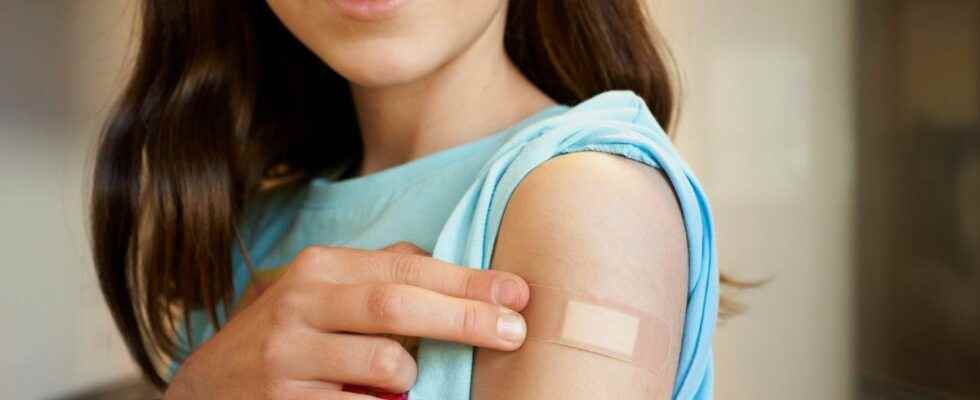Published on
Updated
Reading 3 mins.
in collaboration with
Dr Gérald Kierzek (Medical Director)
The High Authority for Health pronounced on February 9: it recommends vaccination against seasonal flu for children without comorbidity aged 2 to 17 years old, without however being compulsory. The objective would be to restrict the spread of the disease in the population.
While the flu epidemic is on the rise again in February, and the disease has affected many French people in recent weeks, the High Authority for Health had been seized by the Directorate General for Health to pronounce on the flu vaccination in the youngest. Result: the HAS recommends integrating the flu vaccine into the vaccination schedule to be offered each year to children without comorbidities aged 2 to 17 years old.
Vaccinating children against the flu, an idea that is gaining ground in Europe
Influenza vaccination is now recommended for people who are at risk of a severe form of the disease, because they are over 65 years old or in the event of comorbidities. It is also recommended for certain professionals, in particular those who are in regular and prolonged contact with people at risk of a severe form of influenza.
Vaccination against influenza is already recommended for children aged 6 months to 17 years in several countries such as the United Kingdom, Spain and Austria to limit the health and organizational impact of the disease. In France, the opinion of the HAS constitutes a first. However, it specifies that the recommendation does not apply to children under two years of age because the integration of this vaccination into the vaccination schedule raises questions of acceptability and the lack of evidence of efficacy in this age group.
Preferred intranasal vaccination
According to the High Authority for Health, the studies analyzed concerning the flu vaccine show good efficacy, from 64 to 78%, and good tolerance in children aged 2 to 17 years. Concerning the safety profile, the pharmacovigilance data for influenza vaccines in children, available in France (Fluarix Tetra®, Vaxigrip Tetra®, Influvac Tetra®, Flucelvax® and Fluenz Tetra®) show no particular signal of poor tolerance.
Each of the five vaccines which has a marketing authorization in children can therefore be used. Nevertheless, the HAS favors an intranasal Fluenz Tetra® vaccine for the youngest. This simpler method of administration (spray in the nose) should indeed be better accepted by children and their parents. The HAS also stresses the need for reimbursement of vaccines so that any parent who so wishes can have their child vaccinated against the flu without financial hindrance.
Stated objectives: to lighten pediatric services and reduce the epidemic
This recommendation is based in particular on several arguments:
- Protect children first consequences of the disease. Indeed, according to the figures announced, children under the age of 15, and more particularly those aged 2 to 5, are overrepresented among the cases of flu-like syndrome seen in city medicine consultations and in the emergency room.
- In fact, this vaccination would to alleviate the burden of influenza in pediatric wards.
- Finally, the HAS considers that children aged 2 to 17 are the reservoir of influenza. Vaccinating them would limit the spread of the disease among the population and the elderly.
A relevant recommendation in France?
Asked about the subject of this new recommendation, Dr. Gérald Kierzek, emergency physician and medical director, however finds this announcement surprising:
“Against the flu, the priority would be above all to better vaccinate the people most at risk, because in the end, we have, above all in France, a vaccination coverage rate that is too low among the over 65s and fragile populations. Rather, it is they who should be engaged more…before targeting children. As for the argument to relieve the pediatric services, it is not the extension of vaccination that will solve the hospital structural crisis” he regrets.
However, the idea of protecting your children, or your whole family, against the seasonal flu is also not nonsense.
“As long as we are on voluntary work, we are on free choice. It is up to everyone, therefore, to use this recommendation according to their needs” he concludes.
